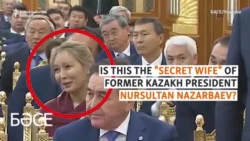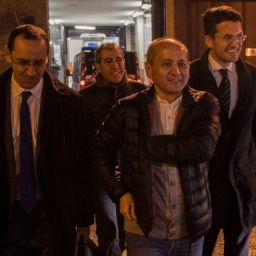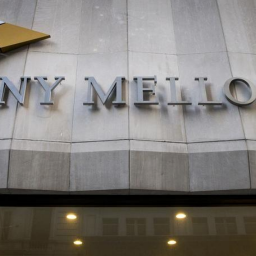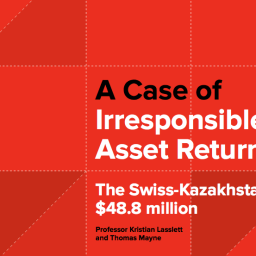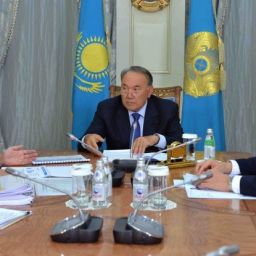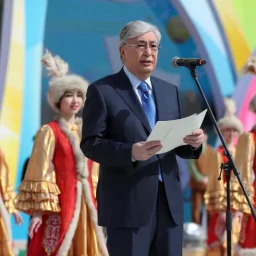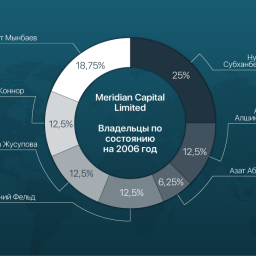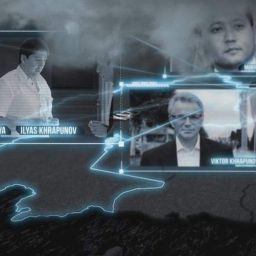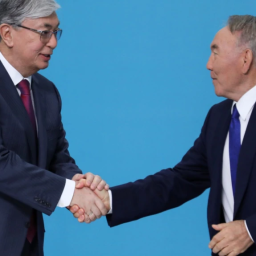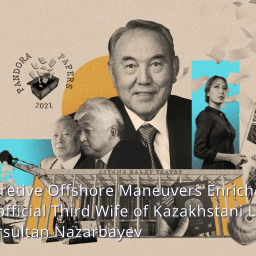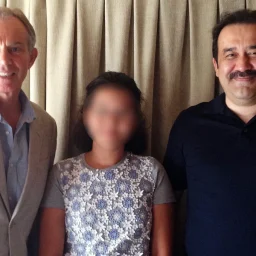On July 6, Kazakhstan celebrated Capital City Day in commemoration of former president Nursultan Nazarbayev’s 1994 decision to move the capital from Almaty in the south to Akmola in the north. The capital was subsequently renamed Astana but, following Nazarbayev’s sudden resignation, it has been known as Nur-Sultan since March 2019. July 6 is also Nazarbayev’s birthday. Despite relinquishing the presidency in favor of his anointed successor, Senate speaker Kassym-Zhomart Tokayev, the former head of state has retained the title of Leader of the Nation and the post of chairperson for life of the National Security Council. Unsurprisingly, Nazarbayev is still widely considered, both at home and abroad, as the power behind the throne to whom President Tokayev defers for all key decisions (Inform.kz, March 19, 23, 2019).
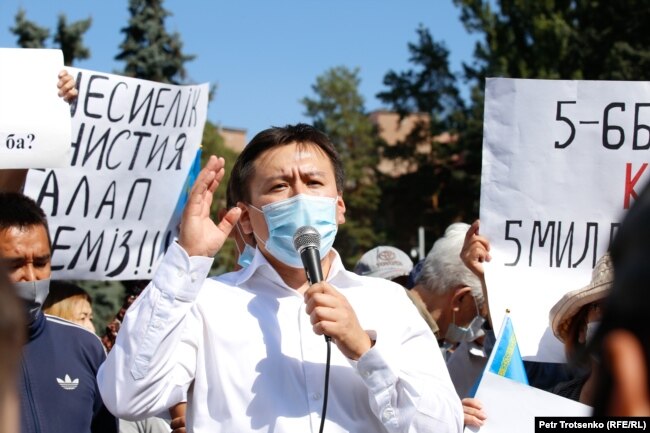
The Capital City Day celebrations in Almaty were marred this year by a protest organized by a long-time critic of Nazarbayev’s regime, Zhanbolat Mamay. A small group of people led by Mamay, who were later forcibly dispersed by the police, called on Nazarbayev to leave the political scene for good, vented their anger at rising inflation and criticized Kazakhstan’s economic dependence on China. The latter point has been a recurrent theme of Kazakhstani domestic politics in recent years, to almost complete silence from the corridors of power. Most recently, in late March 2021, opposition activists, including the aforementioned Mamay, held a pre-authorized rally in Almaty with some 300 participants protesting “Chinese expansion” into Kazakhstan, namely the two governments’ old plans to build a network of industrial enterprises on Kazakhstani territory (Exclusive.kz, July 7; Mediazona.ca, July 6; Radio Azattyk, March 27, July 6).
Since February, the Chinese consulate in Almaty has been assiduously picketed by relatives of ethnic Kazakhs who are alleged to be in arbitrary detention within so-called “re-education camps” located in China’s Xinjiang Uyghur Autonomous Region (XUAR). Similar unauthorized pickets occurred in mid-2020, but they were few and far between, poorly attended and quickly suppressed by law enforcement (Tirek.info, May 30; Vlast.kz, March 25; Radio Azattyk, February 18, July 13; Holanews.kz, June 26, 2020). Back in December 2019, Tokayev told a Deutsche Welle journalist, who also happened to be the daughter of Boris Nemtsov, a prominent Russian opposition politician murdered near the Kremlin in 2015, “I think that these materials [about forced labor in XUAR] do not reflect the reality. There may be isolated cases of ethnic Kazakhs getting into reeducation establishments, but […] for Kazakhs to be forced there en masse there is no such trend” (Lsm.kz, December 5, 2019).
The government of Kazakhstan under both Nazarbayev and Tokayev, the latter of whom is a fluent Mandarin speaker, have continuously strived to maintain a problem-free relationship with neighboring China. To date, Kazakhstan’s restricted democracy continues to be micro-managed by the ruling regime, which does not allow genuinely opposition elements into the mainstream. For instance, Mamay’s Democratic Party was registered by the Ministry of Justice in late 2019 but could not hold its inaugural congress. The French-based exiled banker Mukhtar Ablyazov’s Democratic Choice of Kazakhstan movement was banned as extremist by a Kazakhstani court in 2018. The latest parliamentary elections of January 2021, which were boycotted by the Nationwide Social-Democratic Party, saw another victory for NurOtan, which is chaired by Nazarbayev. The ruling party effectively preserved its 70-plus-percent majority. However, even with such a system in place, the regime cannot fully control popular discontent (Interfax, January 10; zonakz.net, February 19, 2020; informburo.kz, March 13, 2018).
Criticisms of China’s growing influence over the Kazakhstani oil industry, and the often-controversial management techniques imposed by expatriated Chinese executives, were already aired extensively during the 2014 protests at Zhanaozen. Those ended in bloodshed on Independence Day (December 16) as government troops fired on unarmed protesters. Small-scale protest actions against China’s economic interests in the energy sphere on the Caspian—largely driven by more prosaic issues such as labor conditions and ultimately little-noticed—have most recently taken place over 2020 and 2021. However, the China issue more prominently came to the fore in 2016 when up to 2,000 people protested each day for nearly two weeks against the government’s purported plans to lease arable land to Chinese companies. As a result, the authorities enacted a moratorium and established a land commission, while two ministers lost their jobs (Lenta.ru, May 6, 2016). In May 2021, President Tokayev signed into law a bill that perpetuates the ban on the sale of agricultural land to foreigners (Tengrinews.kz, May 13).
China remains Kazakhstan’s second-largest trade partner, right after Russia, and a major investor. Yet the lingering crisis in the global oil industry, which began in 2014 and (after a brief period of respite) was accentuated by the COVID-19 pandemic, has left its scars. In 2020, China repatriated a record $811 million worth of profits from past investments, versus directing $670 million and $569.4 million worth of net investment flows toward Kazakhstan in 2013 and 2014, respectively. In contrast, Russia has maintained a positive net flow of investments year after year, since 2013, according to Kazakhstan’s trade statistics. With the implementation of Chinese Belt and Road Initiative projects stalling across Central Asia, the Kazakhstani authorities will find it increasingly challenging to counterbalance popular anti-Chinese discourse, which feeds on both outright misinformation and long-held fears (Stat.gov.kz, accessed July 23). Nur-Sultan’s accommodating policy toward Beijing is, thus, becoming increasingly more difficult to sustain.
Eurasia Daily Monitor By: Serik Rymbetov
